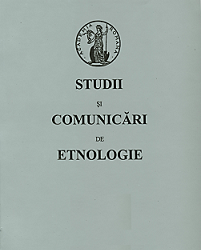

Peer-review policy
The peer-review process of the texts proposed for publication is conducted in accordance with international standard.
General information
The types of texts that are subjected to peer-review procedure: studies, scientific, book-reviews. All these forms of texts will be reviewed with all the discretion of the editors. Other contributions – such as books and journals, presentations, scientific notes, discussions, technical information – are not usually peer-reviewed. They stay up to editor. For any general questions about the peer-review process and preparing of manuscripts you can contact the editors.
Online manuscripts reviewing
The editors require peer-reviewers to submit their opinions online, but they also can be sending it in the print format.
Criteria for publication
The decision to publish a text is based on several general criteria: the originality of paper work and its degree of novelty, the scientific approach, the importance for the specific scientific area, clear conclusions, the interdisciplinary approach and addressability.
In general, a paper should represent an advantage in its scientific field, in terms of concepts, knowledge and interpretation of facts and ideas presented, in order to be published.
The review process
All manuscripts submitted will be read by the editorial staff. The editors will decide if the paper matches to our journal profile and peer-reviewing criteria. Papers considered by editors as unacceptable for journal profile or for general scientific interest will be rejected without being subject to the external reviewing. Manuscripts considered being of potential interest for our readers are sent for peer-review to two reviewers. They are chosen from the prestigious specialists from the field of paper’s topic. The editors will decide about paper based on the opinion of reviewers who can recommend one of the following decisions: the paper is accepted as proposed by the author, the author is invited to review the manuscript, after review editors take the final decision; the paper is rejected, with explanations for the author for radical revision, the paper is rejected without explanation, because it didn’t brings news, has impaired the use of specialized terminology, has major problems of interpretation.
Reviewers may have different opinions. In this case we use a third reviewer. They must provide clear reasons for their choice to assist editor in making the final decision.
Selecting reviewers
The reviewers are selected among Romanian Academy institutes’ researchers, lecturers and professors, curators and archivists, considering of their scientific reputation in one area of journal topics, communication ability and expertise of the researcher, availability when editors need their services.
Timing
Anonymity
The editorial staff does not disclose the identity of reviewers to authors or to other reviewers, unless they want to be known. In general, the editorial staff prefers to keep confidential the identity of reviewers, to ensure independence and objectivity of their opinions. For the same reason, the editors avoid to reveal the authors’ names to reviewers. If the reviewer wants to know the name of author for determine any ideas, plagiarism or other forms of influence, they can get it from editors. The editorial staff asks authors not to try to find out the name of reviewers for a confrontation with them. Our editorial policy is not to confirm or deny the speculations about the identity of reviewers and we encourage them to do the same. For the same reasons, the reviewers’ reports are not published. If necessary, the proposals to revise the paper will be sent to authors. Editorial staff asks reviewers do not offend the authors in their reports, to focus on the authors’ ideas and not upon on their anonymous persons. Reviewers are encouraged to express all ideas in written, not verbal.

